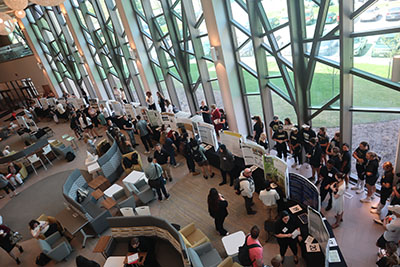Student Type
Undergraduate
Faculty Sponsor
Michiko Nohara-LeClair
Date
4-12-2022
College Affiliation
College of Science, Technology, and Health
Department
Psychology
Submission Type
Poster
Abstract
Present research in developmental psychology provides an indication of the possible link between young children’s use of self-soothing devices and caregiver use of soothing behaviors on children’s sleep arousal. Self-soothing devices and soothing behaviors have the ability to promote an increase or decrease in children’s arousal during sleep. Through our ongoing study, we are examining whether pacifiers are related to young children’s sleep arousal. Along with this, we are examining whether swaddling is related to young children’s sleep arousal. We hypothesize that the use of pacifiers and swaddles will decrease infant sleep arousal. Preliminary findings will be presented and we will discuss their implications.
Recommended Citation
Goldsmith, Makenzie and DuBois, Melanie, "Young Children’s Sleep Arousal Relationship with Self-Soothing Devices and Soothing Behaviors" (2022). 2022 Student Academic Showcase. 7.
https://digitalcommons.lindenwood.edu/src/Posters/Session1/7
Publication Date
2022
Young Children’s Sleep Arousal Relationship with Self-Soothing Devices and Soothing Behaviors
Present research in developmental psychology provides an indication of the possible link between young children’s use of self-soothing devices and caregiver use of soothing behaviors on children’s sleep arousal. Self-soothing devices and soothing behaviors have the ability to promote an increase or decrease in children’s arousal during sleep. Through our ongoing study, we are examining whether pacifiers are related to young children’s sleep arousal. Along with this, we are examining whether swaddling is related to young children’s sleep arousal. We hypothesize that the use of pacifiers and swaddles will decrease infant sleep arousal. Preliminary findings will be presented and we will discuss their implications.


